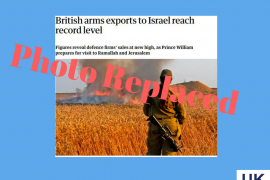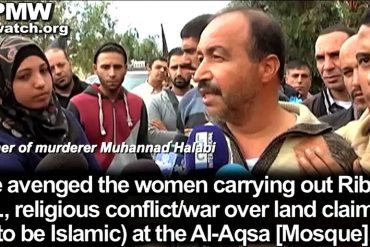1) At the JCPA Nadav Shragai explains how ‘The Status Quo on Jerusalem’s Temple Mount Has Greatly Changed since 1967’.
“One of the explanations the Palestinians often give for the recurrent, long-standing riots and violence on the mount by the Muslim side is that Israel is violating and altering the status quo in ways that favor Israel and the Jewish side and harm Muslims. They call this an “assault on Al-Aqsa,” an “invasion of Al-Aqsa,” and most frequently of all, proclaim that “Al-Aqsa is in danger.”
Yet, a careful look at the changes on the mount during the 55 years since the Six-Day War reveals an opposite picture. The changes in the 1967 status quo, and in the arrangements that were made in its light, have greatly improved the Muslims’ status and hold on the Temple Mount.”
2) At the Alma Center, Yaakov Lappin looks at ‘The Gaza Conundrum’.
“…Hamas is working tirelessly to set the West Bank and East Jerusalem on fire with violence and terrorism. Destabilizing the West Bank weakens the rule of Hamas’s internal rival, Fatah, and it also serves Hamas’s ideology of killing Israelis wherever it can.
Hamas does this through pervasive incitement and conspiracy theories that it spreads on media and social media networks, seeking to convince Palestinians that the Al Aqsa Mosque “is in danger.” And Hamas does this through orchestrating, remotely, terror cells in the West Bank, which the Shin Bet intelligence agency breaks up with great precision and speed.
The conflict with Hamas, in whatever form it may take, is not due to end any time soon.”
3) MEMRI reports on a fatwa by an Iranian Grand Ayatollah.
“For years, the Islamic revolutionary regime in Iran has been shopping to the West the concept that its nuclear activity is strictly for civilian purposes. To this end, senior Iranian officials have clung to the fatwa by Iranian Supreme Leader Ali Khamenei – which does not exist – that they say bans nuclear weapons outright.
Recently, however, there have been frequent statements by Iranian regime officials revealing that the regime is confirming that it is acting to acquire nuclear weapons, on the pretext that nuclear weapons are for deterrent purposes only.”
4) At the INSS Yoel Guzansky and Gallia Lindenstrauss analyse relations between the Gulf countries and Turkey.
“Following a decade of tension, relations between Turkey and leading Arab countries have seen significant positive developments over the past year, led by the détente with the United Arab Emirates and Saudi Arabia. While Turkey’s reversal regarding Abu Dhabi and Riyadh stemmed mainly from economic considerations, it also has geostrategic implications. The thaw between Ankara, Abu Dhabi, and Riyadh bolsters the chance that the recent rapprochement between Israel and Turkey will last, because it encourages Ankara to assume a more moderate position on regional issues that are important to Israel.”





